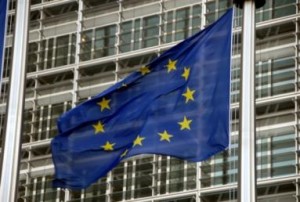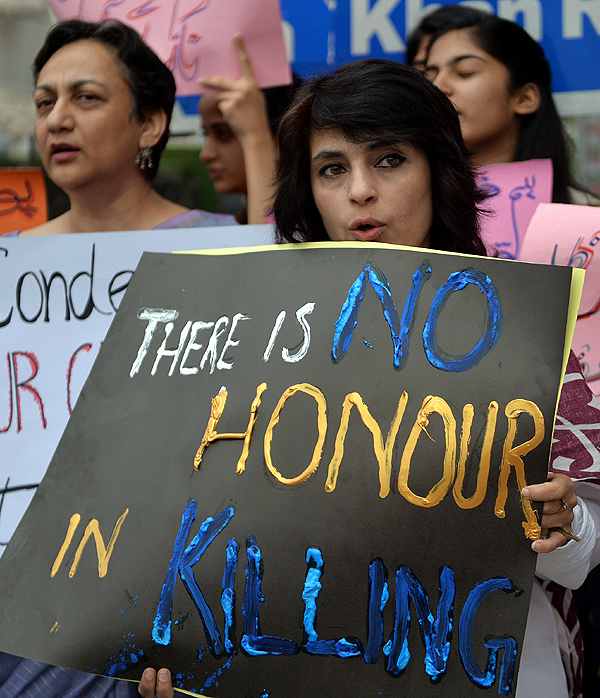Brussels Mulling Over Imposing More Sanctions Against Moscow
Tuesday, May 6th, 2014 6:57:59 by Abdul Basit Abbasi
The European Union does not know how to stop destabilizing derived from Russian President Vladimir Putin. Increasing violence in eastern Ukraine requires hard punishment to Moscow, but the lack of results so far carried Brussels think twice. Although the positions are converging, the Veintiocho still torn between the German, partisan way to explore more of the sanctions stage – specific, limited to people and try to talk to Putin and Polish, which advocates a more aggressive toward Moscow. The secretary general of NATO, Anders Fogh Rasmussen, described as ” historic mistake ” attitude of Russia in Ukraine in an interview in the Frankfurter Allgemeine.
Europe has become increasingly clear that economic sanctions be taken against Russia, but that does not guarantee a shift in the Ukrainian conflict. German Chancellor Angela Merkel, and featured tracks on Friday to consider, following his meeting with U.S. President Barack Obama in Washington that a new round of punishment is inevitable. That reversal of German diplomats conditions to other countries that are still hesitant. The rotation, in any case, it is more noticeable when talking foreign minister, Social Democrat Frank -Walter Steinmeier, Merkel when it does, less prone to confrontation.
From the beginning of the crisis in Ukraine, Germany has spearheaded a school of thought, to which also belong Italy, Spain and France initially non – partisan retaliation against Putin. Beyond economic reasons, these countries have argued that the purpose of sanctions is not the reprimand itself, but the stabilization of Ukraine, which is not guaranteed by stoking harder to Moscow. By clearly economic reasons, Greece and Cyprus (a rescued and highly dependent on the Russian capital country), add to this group.
The High Representative for Foreign Policy, Catherine Ashton, supports this soft approach to the crisis. Before the arson of a building in Odessa, which killed 36 people, Ashton yesterday called for an independent investigation to help clarify what happened and urged the two warring sides to abandon violence.
Facing the moderate group, a very fearful of an imperialist revival Poland calls for relegating Russia to ostracism. “We have to realize that what Russia is not only against Ukraine, but against the EU ” diplomatic sources insist there. The Baltic, with significant Russian-speaking minorities, share that fervor. Also Sweden for a moral view of the facts according to which the Russian attitude should be penalized.
Something different is the position of the United Kingdom, whose anti-Russian belligerence in this crisis is attributed largely to the alignment with the United States. London moves to punish Putin, but refuses to do so using for example, the financial sector. One of the damage that could be inflicted on Russia would insulate their banking, but UK fears the impact on its robust financial sector.
With these elements in the environment, representatives of the 28 states will meet again tomorrow to try to advance individualized sanctions and also extend to companies. Because the current mandate only allows entry into Europe veto and freeze the assets of those responsible for violating the sovereignty of Ukraine and associated companies those individuals people. Ambassadors can try to determine whether to sanction, for example, an oil and if this requires a change in the model legal sanctions to prevent complaints from those affected. Beyond that expansion of the call phase two of the sanctions, which already has nearly 50 names, Brussels still working on the next step. ” Most likely we get to these economic sanctions, starting with low intensity measures “, EU sources say. One possible measure would be to disrupt European exports of luxury goods to Russia. Or those of high-tech products likely to be used for military purposes – such as the U.S. has done.
The intense pressure from Washington is one of the elements that affects the European strategy, but neither Obama nor Ashton have taken so far Putin clampdown. Despite the stronger U.S. president’s tone, the measures apply both blocks are fairly even.
Experts also now give more credibility to the hardening of the European position. “Although until recently it was unlikely that the EU was in a position to define sanctions level three, that’s no longer the case,” say the experts from Eurasia. “Ukraine has been a great opportunity to develop an EU policy towards Russia,” concludes house ECFR analysis.
Short URL: https://www.newspakistan.pk/?p=43585

















